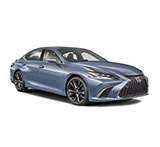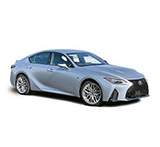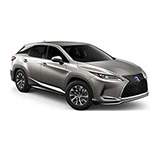Lexus

About Lexus
Lexus is a well know, popular, and time-honored car brand that has been producing luxury and semi-luxury vehicles since the 1980s. A sub-brand of Toyota Motor Corporation, Lexus is best know for their high end luxury sedans. The Japanese car manufacturer introduced Lexus in the United States originally, but has since expanded it's offerings to an international marketplace. Now, Lexus vehicles are sold in some 70 Countries around the world.
First unveiled in 1989, in the United States (as noted above), Lexus sought to provide quality, high end luxury vehicles to compete with those made in both Europe and the United States. To this day, Lexus continues to be one of the most popular sub-brands that Toyota produces and are lauded for their high level of quality and sophistication.
The Beginning - 1989
In 1989, the Japanese auto manufacturer, Toyota Motor Corporation, unveiled their Lexus line of luxury vehicles. The brand was born out of a secret creation that culminated in the Lexus LS 400, the first model offered by the company. The car was designed amidst much secrecy and the project was codenamed "F1"
The F1 (Flagship 1) was a project that started at the behest of the chairman of the company who wished to produce what he referred to as "the best car ever invented." The result of this project was the first Lexus vehicle. The idea was to come up with a sophisticated, high quality, luxury sedan that would compete well against the other competing brands. With people in the West gaining more expendable income, Toyota saw this as an opportunity to take advantage of the burgeoning market for luxury cars.
The LS was noted for it's performance, comfort, and quality of design, as well as for the quietness of the ride (especially when compared to vehicles boasting similar levels of performance). With the initial success this model generated, plans for expansion and new vehicle models were soon underway.
Not long after the first vehicle was unveiled, Lexus began to produce coupes, sedans, convertibles, and in later years, even high end SUVs.
An interesting side note about the early years of Lexus: they were not originally available in Japan - the home market of the parent company, Toyota. They were designed for the US market only and were available across Europe and many other nations before becoming available in Japan in 2005.
The Ascent of the Brand
The popularity of the brand continued to grow and thus necessitated the expansion of the brand to markets beyond the borders of the United States. In the early 2000s, Lexus also began to design sportier performance cars, culminating in 2009 with the LFA, the brand's supercar. This transition into high end sports vehicles has expanded the brand's reach even further and further cemented the brand name in the minds of those looking for high end vehicles.
1990 was the first full production year for Lexus vehicles. They were so well received during the partial year previous that their sales were expanded to include Australia, the United Kingdom, and Canada.
Sporting the same rear-wheel drive and V8 engine configuration as the flagship LS, Lexus unveiled it's first sport coupe that same year, the SC 400.
1991 was another good year for the brand as they received the Best in Class award from J.D. Power and Associates.
1998 saw Lexus surpass any other luxury brand in sales. The following year saw the sale of their millionth car.
In 2004, the first luxury hybrid vehicle, the RX 400h was released - this was not only Lexus' first foray into hybrid technology, it was the first luxury hybrid produced. This was a SUV that utilized the Lexus Hybrid Drive. Designers saw that the future of many vehicles would be some sort of hybrid technology and thus, the proprietary drive was designed.
The Present Day - 2014
Fast forward almost some 30 years and Lexus has created a following of loyal fans of the high end car brand. The brand ranks in the top 10 in terms of market value for Japanese brands.
It has not all been rosy though. The market for luxury vehicles does not demand what it once did. Now, fuel economy is important for those who drive luxury brands as well. This, coupled with some Toyota recalls (which included Lexus vehicles as well), and political trade tension put a strain on the company. Going back to the proverbial drawing board, research and design at Lexus strove to create sophisticated, high end models that meet the needs of today's luxury car consumer.
2010-2011 saw the unveiling of a compact, hatchback hybrid Lexus model, which was designed for the European marketplace. Still a luxury vehicle, the compact car is quite a departure from the sedans they are known for. However, these models are what the consumers are asking for. They want increased fuel efficiency and the use of alternative fuels for their luxury vehicles.
In 2011, disaster struck with a severe earthquake that rocked Japan. The quake dramatically stalled and halted production from the facilities based there. The company blamed this catastrophe for the brand no longer being the top seller. That same year saw a decline in sales in the US markets. However, it also showed even higher gains in international, particularly Asian markets, which is an overall upward trend for the brand.
The LF-LC concept cars was unveiled in Detroit in 2012 at the North American International Auto Show. It was incredibly well received and went on to win the best concept vehicle award, called the EyeOnDesign Award, for that year.
Lexus has some 30 years of experience in providing high quality, sophisticated, luxury vehicles for the American and world market. Originally created in 1989, the company has since expanded beyond it's original American market to reach the international stage. What started out as company that focused mostly on high end sedans, Lexus now makes many different models of high end vehicles from SUVs to convertibles and sports cars.







